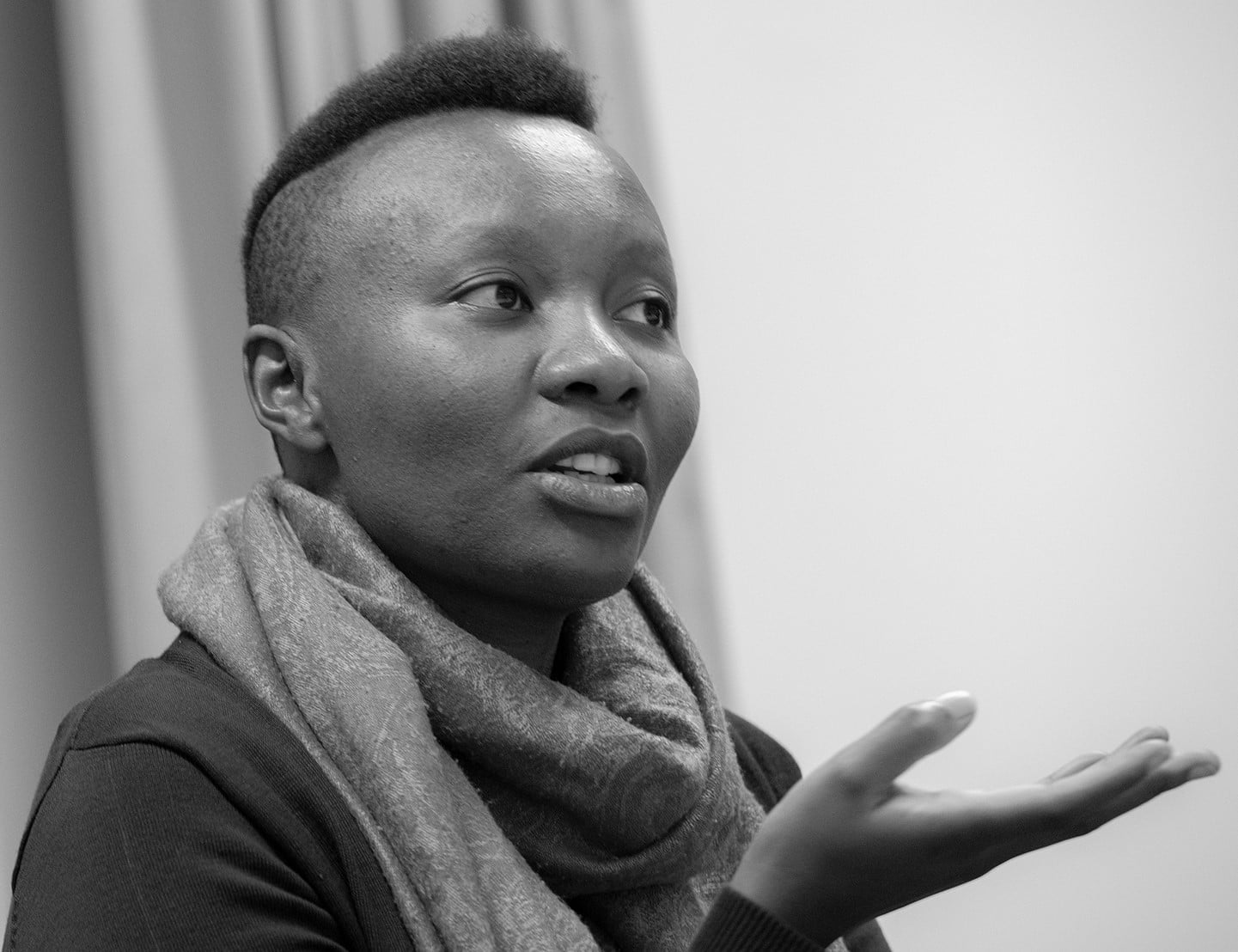
Makena Onjerika
- Kenya
- Zu Gast beim ilb: 2019
The Kenyan writer Makena Onjerika was born in Nairobi in 1987. She studied economics at Amherst College in the USA and also participated in creative writing courses. She later earned a Master of Fine Arts in creative writing from New York University, after which Onjerika decided to return to Nairobi.
She has been writing literary texts since her school days, including a fantasy novel at the age of fifteen. Her short story »Fanta Blackcurrant«, the first version of which was written in 2012, was published in the British literary magazine »Wasafiri« in 2017 and won the prestigious Caine Prize for African Writing in 2018. The jury praised Onjerika and her novel, saying she is »as fierce as they come … a narrative that is haunting in its humor, sorrow and intimacy«. Onjerika tells the story of a girl named Meri, who lives on the streets of Nairobi. When she talks with her friends about what they want from God, she says she wants to quench her thirst every day with »Fanta Blackcurrant« for the rest of her life. Meri is not only beautiful, but also smart, funny, and eager to escape life on the street and find a better life. Over the years, however, she has to fight harder and harder battles in a bleak world of poverty, prostitution, crime, drug abuse, and violence. »At some point it became clear to me that I had been living in Nairobi for a very long time without even thinking about the street children. I had never perceived them as children, but only as the Others. With this story I wanted to find out what a childhood on the streets of Nairobi looks like. Because I not only wanted to know for myself, but also to draw Nairobi’s attention to these extreme living conditions.« Onjerika was inspired by the story »Stickfighting Days« by Olufemi Terry, which is about the lives of street boys in Sierra Leone and won the Caine Prize in 2010. The unique language of expression that Onjerika uses in her narrative reflects the everyday language of Kenyans, in which the three languages of English, Swahili and the speaker’s mother tongue are mixed together. Onjerika transforms this mixture of languages into English in her text. Through this form of representation, every trace of sentimentality is suppressed, while the narrative makes gains in realism and plasticity.
Onjerika is currently working on further texts about life in Kasarani in the late nineties, a residential area in Nairobi to which her mother moved in 1996 and where Onjerika herself grew up at a time when there were hardly any houses and no electricity. She is also writing a fantasy novel. The author lives in Nairobi, where she teaches creative writing.
Fanta Blackcurrant
Wasafiri
London, 2017
